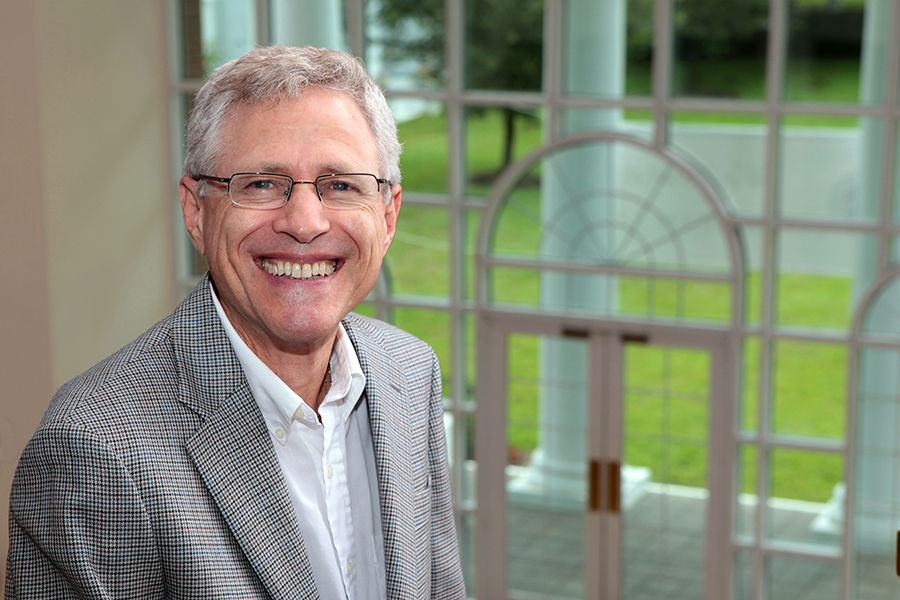College of Law professor dedicated to improving student well-being

Finals week can be a time of heightened stress for many students. For law students, the pressure can feel even more overwhelming.
Studies show that 75% of law students experience significant stress and anxiety, a troubling trend that has increased nationwide in recent years. Florida State University College of Law Professor Lawrence Krieger is taking proactive steps to support students’ mental health and overall well-being.
“At FSU Law, we are committed to equipping our students with the academic tools for success and providing the mental health support and wellness resources they need to thrive,” said Erin O’Hara O’Connor, dean of the FSU College of Law. “We recognize that true success in the legal profession requires academic excellence and well-being.”
Krieger is a 34-year veteran of FSU Law whose pioneering research in psychology and law has earned him global recognition. His work focuses on understanding and improving the well-being of law students and legal professionals. Through his courses, programs and personal mentorship, Krieger empowers students to manage stress and build resilience, ensuring they have the mental and emotional tools to succeed in law school and throughout their careers.
“Law school can create significant stress and anxiety for students who are equipped with the right mindset and practices to cope,” Krieger explained. “We know from research that those feelings can lead to significant mental health challenges. While academic success is emphasized, the importance of well-being is often overlooked. Our goal is to help students understand that success in law school isn’t just about grades or prestige — it’s about finding joy and fulfillment in their lives.”
“Our goal is to help students understand that success in law school isn’t just about grades or prestige — it’s about finding joy and fulfillment in their lives.”
-Lawrence Krieger, FSU College of Law Professor
Krieger’s impact extends beyond traditional law courses. Alongside his wife, Rev. Theresa Krieger, he co-teaches a course titled Transformational Leadership for Lawyers. This unique class teaches students how to reduce stress while developing the six dimensions of competence identified by the National Task Force on the Future of the Legal Profession. Krieger also mentors numerous students and alumni, along with hosting weekly meditation and movement sessions to help students relax, refocus and recharge.
Research clearly shows that well-being is not only beneficial for health and quality of life but also improves performance. FSU Law is committed to student well-being, incorporating wellness practices into the curriculum and offering comprehensive mental health resources to students from the beginning of their time at the college.
“We are deeply grateful for Professor Krieger’s invaluable work in wellness initiatives,” said Dean O’Connor. “In addition to his contributions, our ‘Raising the Bar’ professionalism program offers a range of wellness initiatives, including Wellness Wednesdays, guest speakers, a fall Wellness Fair, and support from our part-time embedded mental health clinician. We also provide financial well-being programming to further support our students’ overall success and health.”
Krieger has earned numerous accolades, including distinguished service awards from the American Bar Association and the Association of American Law Schools. In 2013, he was recognized as one of 25 faculty members nationwide in the Harvard Press book “What the Best Law Teachers Do.”
Additionally, Professor Krieger was highlighted in a 2025 National Jurist article, where he examined the ongoing challenges facing lawyers, drawing on data from over 6,000 practicing attorneys and judges. His influential books on law student well-being are used in law schools across the United States, Canada and Australia, solidifying his position as a leading advocate for improving mental health within the legal field.
For more information, visit law.fsu.edu.
The post College of Law professor dedicated to improving student well-being appeared first on Florida State University News.








